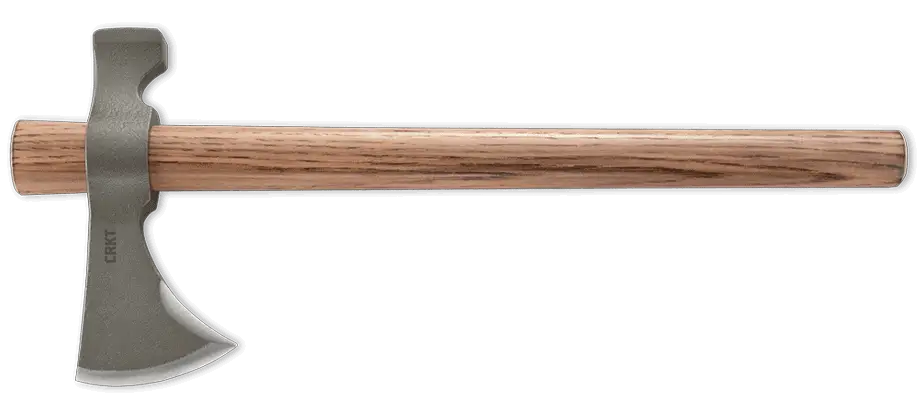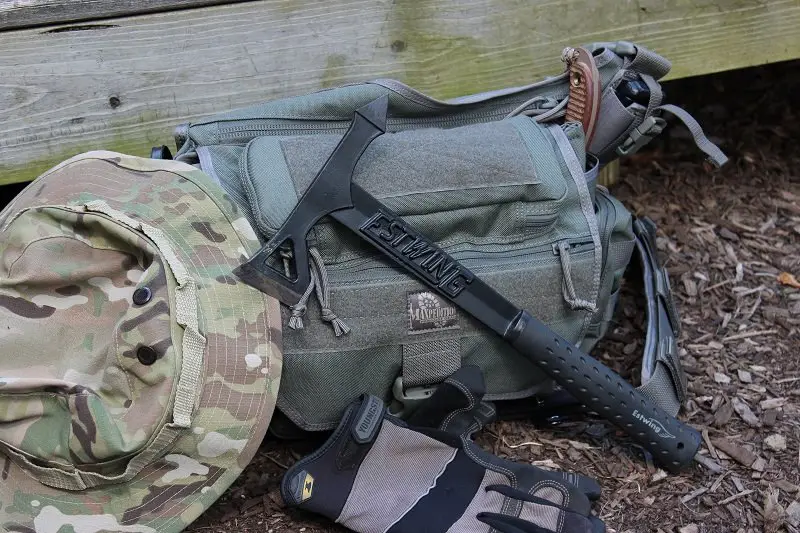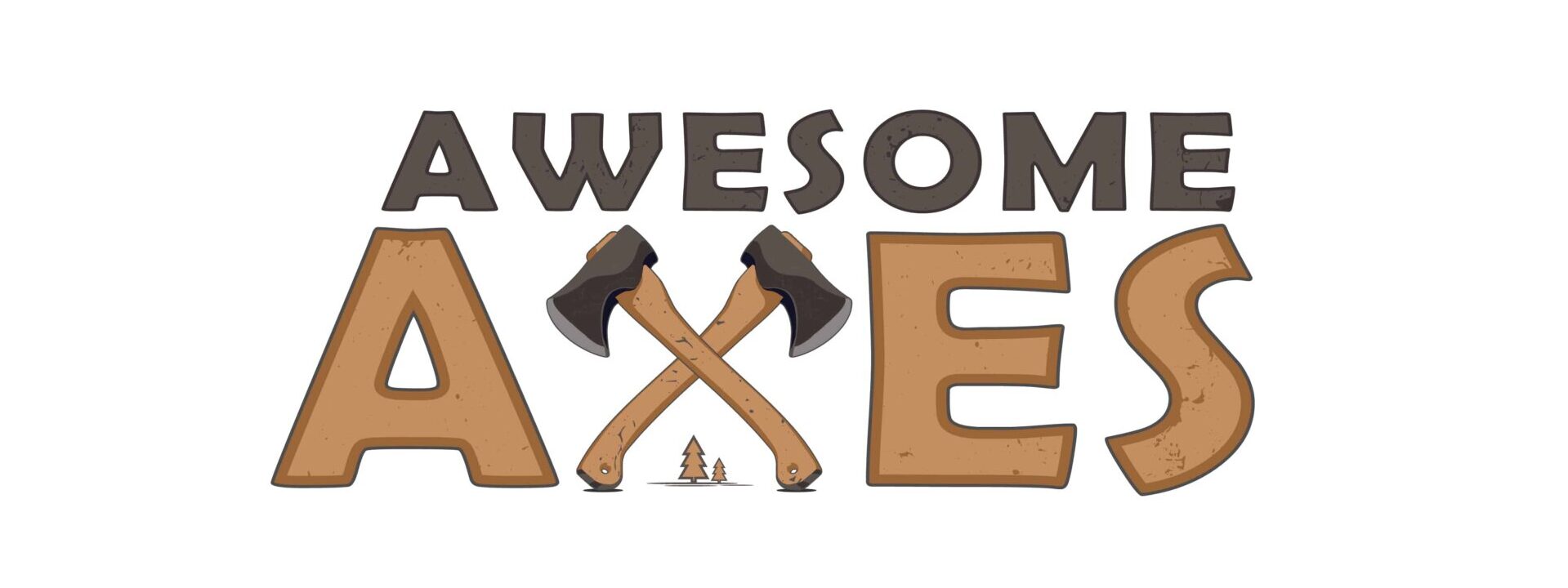A tomahawk is a versatile, single-handed axe native to North America, traditionally used by Indigenous peoples and European colonists. Featuring a lightweight design with a straight handle and a flat, sharp cutting edge, tomahawks serve various purposes, including as tools, weapons, or throwing implements in modern recreational and tactical applications.
Tomahawks are probably one of the most famous types of axes. People read all about them in comic books or see them in cartoons. However, fewer people know that tomahawks are important types of axes still used today. Even fewer would be able to explain what a tomahawk is if you sat down and asked them.
If you’re one of those people, here is everything you need to know about a tomahawk.
Table of Contents
What Is a Tomahawk?
A tomahawk is a straight-handled, single-handed axe. These axes originate in North America. Native Americans across the continent used tomahawks for warfare and for practical applications.
Tomahawks are similar to hatchets, another popular axe type in America. Tomahawk head shapes are similar to hatchets because one side of the head is shaped like a blade, while the other is blunt, like a hammerhead.

Design Features of a Tomahawk
A few composition features make tomahawks stand out compared to other axes. The most important features of a tomahawk include:
The Handle
Tomahawk handles have a wooden shaft that is about two feet long. It is long enough to give the axe a bit of heft but still short enough for someone to use it with just one hand. The longer handle also provides plenty of leverage, which is useful for various household tasks that require an axe.
The Axehead
Another important characteristic of the tomahawk is the style of axe head. Most tomahawk heads have a light blade. Some have a single blade with a dull hammerhead at the other end, like a hatchet (as mentioned above). Others are double-bladed, meaning that one side is a sharp blade while the other is a sharp point.
Throughout their history, tomahawks have included a few different variations. One unique type of tomahawk that is more ceremonial than practical is the tomahawk peace pipe. One side of the pipe tomahawk head is a sharpened axe head, while the other is a tobacco pipe. These were usually given as gifts to bridge strained relationships between different tribes or between Native Americans and Europeans instead of as practical objects.
The History of Tomahawks
Tomahawks are a weapon with lots of history behind them.
Native American tribes used tomahawks for hundreds of years. Tomahawks are associated primarily with the Algonquin people of the Northeastern United States. Early tomahawk heads were made of stone. Once Europeans arrived in North America and began trading (and fighting) with local peoples, Algonquin and other tribes gained access to metal and started making metal tomahawk heads.
Tomahawks were highly versatile tools. Some were for practical purposes, such as chopping wood, while others were weapons of war. Europeans began incorporating tomahawks into their military kits as well.
As mentioned above, Tomahawks also had an important ceremonial purpose for peace ceremonies and gift exchanges. Ceremonial tomahawks are highly decorated with wooden carvings, feathers, and more. Highly decorated tomahawks were a status symbol, not just among Native Americans but also in early colonial societies.
What Are Modern Tomahawks Used For?
Tomahawks have a long history, but that doesn’t mean they’re consigned to the past.
1. Camping and Wilderness Survival
Serious preppers and survivalists include tomahawks in all of their kits. These lightweight, versatile axes are the perfect tool for chopping wood, clearing ground, and any other tasks you might run into while out in the wild. You can also use them in combination with other tools, such as nails, for hammering in tent stakes, thanks to the flat hammerhead.
2. Military and Law Enforcement
For the Algonquin and other Native American tribes, the tomahawk was a weapon of war. Even in the age of drones and automatic weapons, the tomahawk is still part of military kits. Vietnam tomahawks are a popular model of modern tomahawks used by some U.S. military units during the Vietnam War.
Besides soldiers, first responders such as police officers and firefighters often carry tomahawks. Tomahawks are useful for rapid response in rescue situations, for example, if someone is trapped in a burning building or vehicle.

Modern Tomahawk Brands
Many manufacturers are capitalizing on the lasting popularity of tomahawks. Here are some of the top brands making modern tomahawks.
Gerber Gear
Gerber is a company that makes a variety of tactical gear, including tomahawks. Many review sites praise its products, such as the Downrange Tomahawk, for improving on an ancient weapon with modern design.
American Tomahawk Company
American Tomahawk Company is different from Gerber Gear because it focuses just on tomahawks. It makes many tomahawks for the U.S. military, including the famous Vietnam tomahawks.
Tomahawks in Axe Throwing
Another modern use of the tomahawk is in the sport of axe throwing. Tomahawk throwing is popular at recreational axe-throwing ranges and among historical reenactment groups. There is even a martial art, Okichitaw, that incorporates axe throwing.
Final Thoughts
The tomahawk is an important historical axe, especially for Native Americans, but it also has an important modern role in the military, outdoor survival, and even sports.
